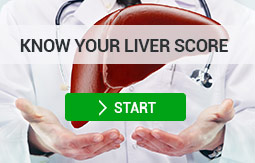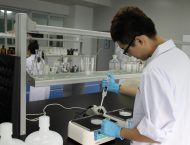What’s in this article
- What is liver surgery?
- When do you require liver surgery?
- Are there any other options?
- Outlook
What is liver surgery?
Liver surgery in medical terms is referred to as liver resection (can refer to partial or whole removal). When suffering from severe liver disease or liver cancer then surgery is often recommended. When your healthcare professional thinks that there is no alternative option then liver surgery is the last resort. You may need part of your liver removed or a full liver transplant depending on your diagnosis. Your doctor will go through the specifics with you and let you know the exact course of action appropriate for you. Liver surgery is a big surgery to go through, in this article we will take you through what you can expect.
When do you require liver surgery?
Patients who require liver surgery can be suffering from different ailments such as
- Cirrhosis
- Liver cancer
- Liver failure
Usually, sufferers of other liver diseases or cysts will be recommended alternative therapy initially, liver surgery is usually a last resort.
Are there any other options?
If you have been recommended to undergo liver surgery then this is usually the last option to save your liver. Liver cancer sufferers can also choose to undergo an alternative targeted therapy, immunotherapy, chemotherapy or radiation therapy.
What to expect
Liver resection can take anywhere between two and five hours to complete. Before you go for your surgery you will need to stop drinking alcohol and smoking for a few days before. If this is going to be an issue for you then you can speak to your doctor about getting help with this.
Before your surgery, you will go to a pre-surgical testing appointment. In this appointment, the nurse or doctor will talk to you about the procedure, answer any questions that you may have and review any medications that you are taking. It is important to be honest with the healthcare team as this can affect your outcome at the end of the surgery. Your healthcare practitioner will review your medical and surgical history with you and perform any necessary tests such as x-rays or blood tests.
It will be helpful for your healthcare provider if you bring the following with you to your appointment:
- A list of all the medications you are taking, including patches and creams.
- Results of any tests done with another healthcare provider
Usually, you should not eat anything after midnight the day before your surgery and limited water should be taken. Your healthcare provider will discuss this with you further. During the surgery, you will be under anesthetic so will not feel anything. Upon waking you will be drowsy and a bit disorientated. Depending on the time and your condition you may have to stay in the hospital overnight, it is important to note that after the surgery, you may be required to stay in the hospital for up to two weeks while you recover. You may have been given a catheter to monitor your urine production and a breathing apparatus using pure oxygen.
You will feel pain after your surgery and your doctor or nurse will prescribe you appropriate pain relief medication. You may not be allowed to eat for up to two days depending on the type of surgery, however, your healthcare practitioner will assess this. Walking is very important after the surgery as this will reduce the risk of blood clots.
Once you have been discharged you will need to continue to recover at home, your health care practitioner will ask you to come back in for regular check-ups after your surgery in order to monitor your progress.
Outlook
Having a liver resection increases a person’s chances of living longer. About 25% to 40% of people (25 to 40 out of 100 people) who have this surgery are still alive after 5 years (5-year survival rate) according to the National Cancer Institute. This may not seem very long, however, with progression in medicine and medications that stop the organ from rejecting, many people go on to live to a normal life expectancy.
Find out about the nutrition bar that 98% of liver health experts would recommend!
References
Mayo Clinic
Liver Directory
Memorial Sloan Kettering Cancer Centre

 (442) 244-5115
(442) 244-5115











